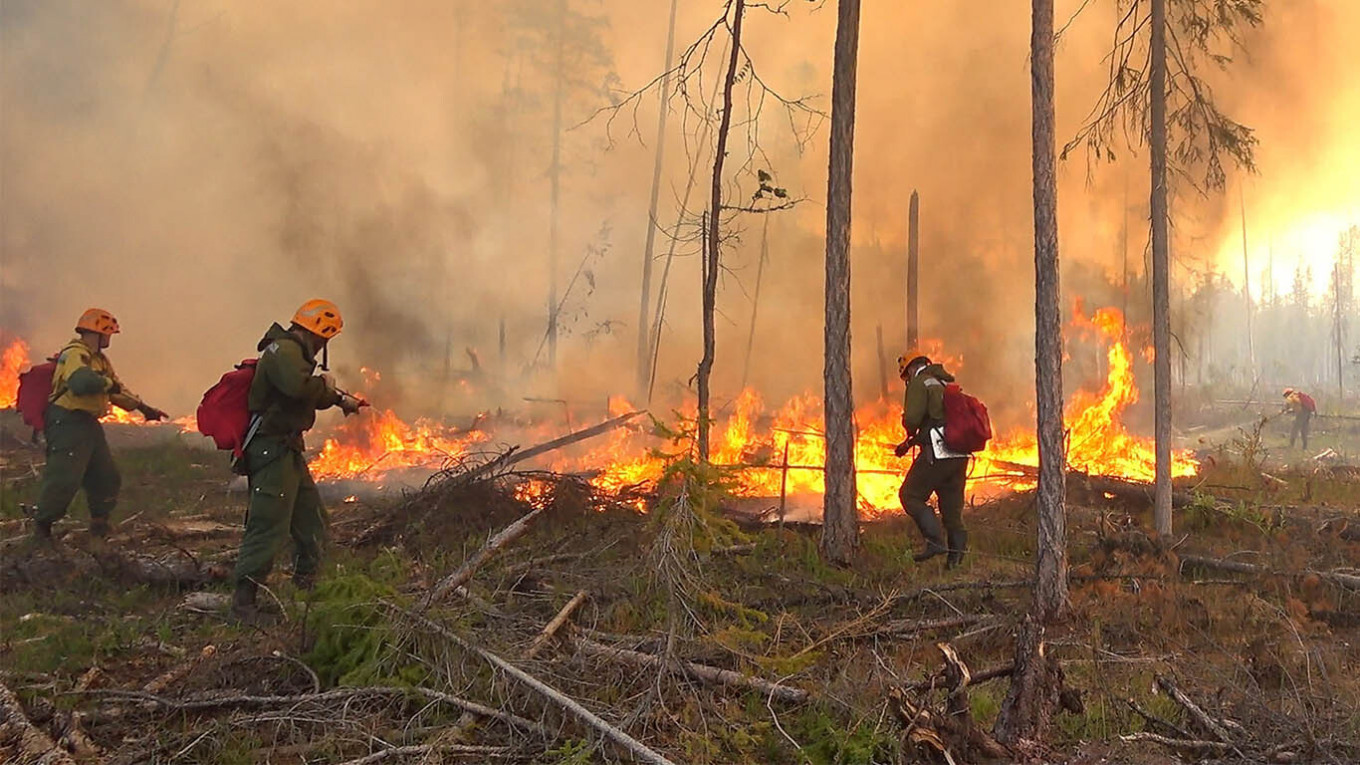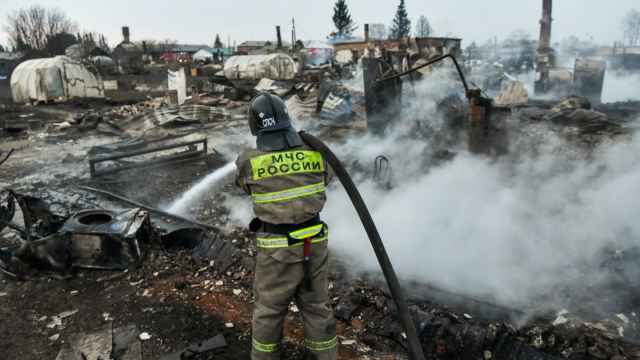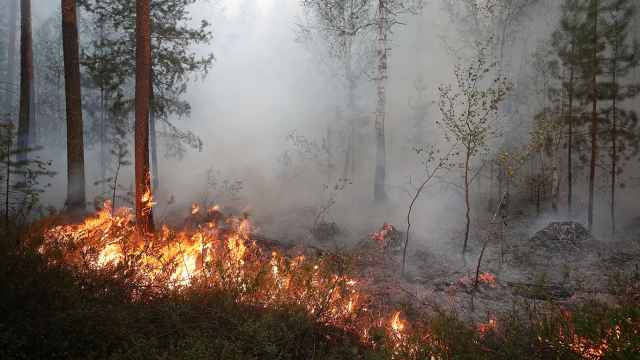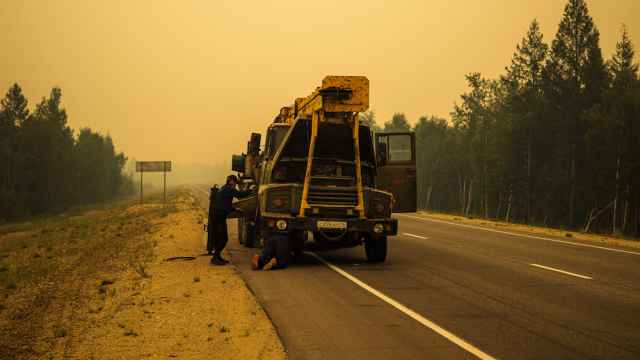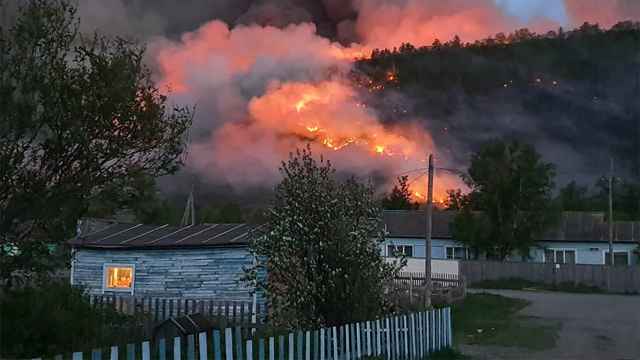Wildfires ravaging northeastern Siberia have spread by nearly 70,000 hectares in the past day, marking a 17.5% increase in a single day, the Kommersant business daily reported Friday, citing the regional emergencies ministry.
Some 400,000 hectares of forest are now burning in Russia’s republic of Sakha.
Abnormally high temperatures and historic drought as well as strong winds have all contributed to the rapid wildfire spread, Sakha’s deputy ecology minister and chief forester Sergei Sivtsev told Kommersant.
“For the central regions of the republic, June 2021 became the second driest in the entire history of observations; the last time such a drought was observed was at the end of the 19th century, in 1888,” Sivtsev told Kommersant.
Average June temperatures were 2-5 degrees Celsius above the norm this year in Sakha, Russia’s largest region, Kommersant cited Sivtsev as saying. The town of Verkhoyansk, one of the coldest inhabited settlements on earth, saw temperatures hit a blistering 48 C last month.
The bulk of fire extinguishing efforts is being carried out near settlements in the Gorny and Tomponsky districts, with 15 districts affected by the wildfires in total, Kommersant reported. Some 2,800 firefighting personnel and 340 pieces of equipment as well as members of the federal paratrooper firefighting service have been deployed to fight the fires.
The republic of Sakha is especially vulnerable to wildfires as more than 80% of its area is covered by boreal forest known as taiga. During last summer’s record-setting wildfire season in Russia, 70% of all forest fires were located there.
Experts have linked warmer, drier weather brought on by climate change to increased likelihood and severity of wildfires. At the same time, the fires contribute to further warming by releasing CO2 into the atmosphere.
Most of last year's Arctic wildfires that emitted record amounts of CO2 were located in Russia, the EU's Earth observation program said.
A Message from The Moscow Times:
Dear readers,
We are facing unprecedented challenges. Russia's Prosecutor General's Office has designated The Moscow Times as an "undesirable" organization, criminalizing our work and putting our staff at risk of prosecution. This follows our earlier unjust labeling as a "foreign agent."
These actions are direct attempts to silence independent journalism in Russia. The authorities claim our work "discredits the decisions of the Russian leadership." We see things differently: we strive to provide accurate, unbiased reporting on Russia.
We, the journalists of The Moscow Times, refuse to be silenced. But to continue our work, we need your help.
Your support, no matter how small, makes a world of difference. If you can, please support us monthly starting from just $2. It's quick to set up, and every contribution makes a significant impact.
By supporting The Moscow Times, you're defending open, independent journalism in the face of repression. Thank you for standing with us.
Remind me later.


